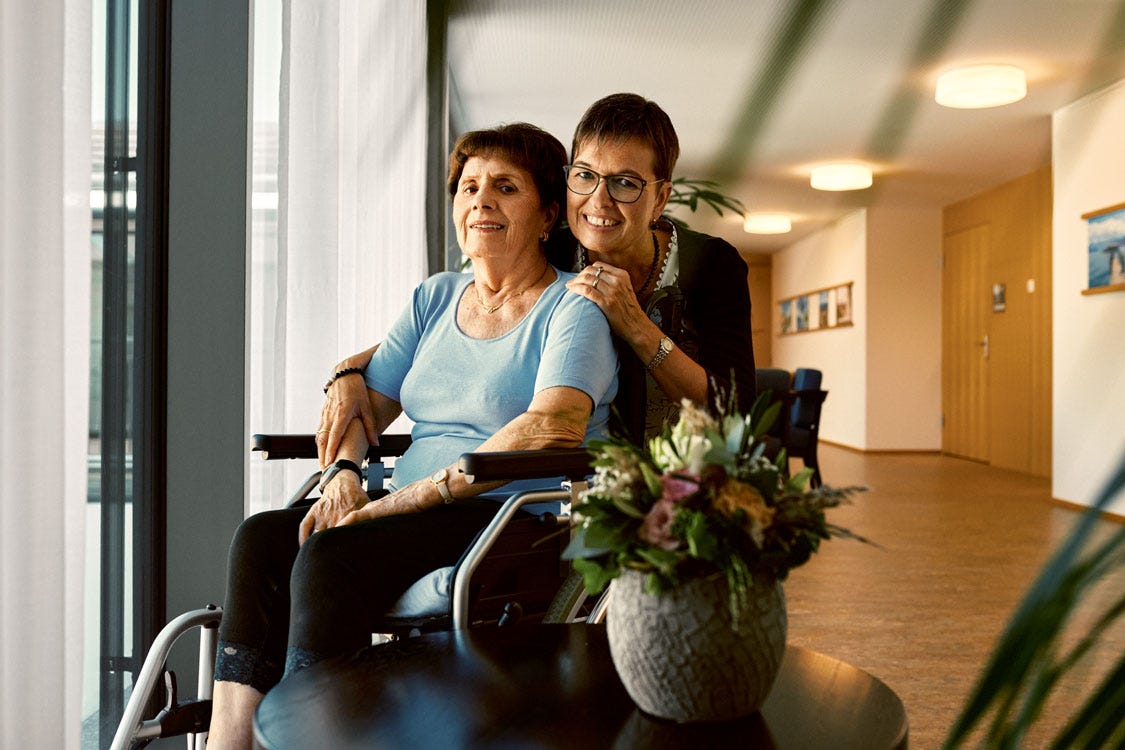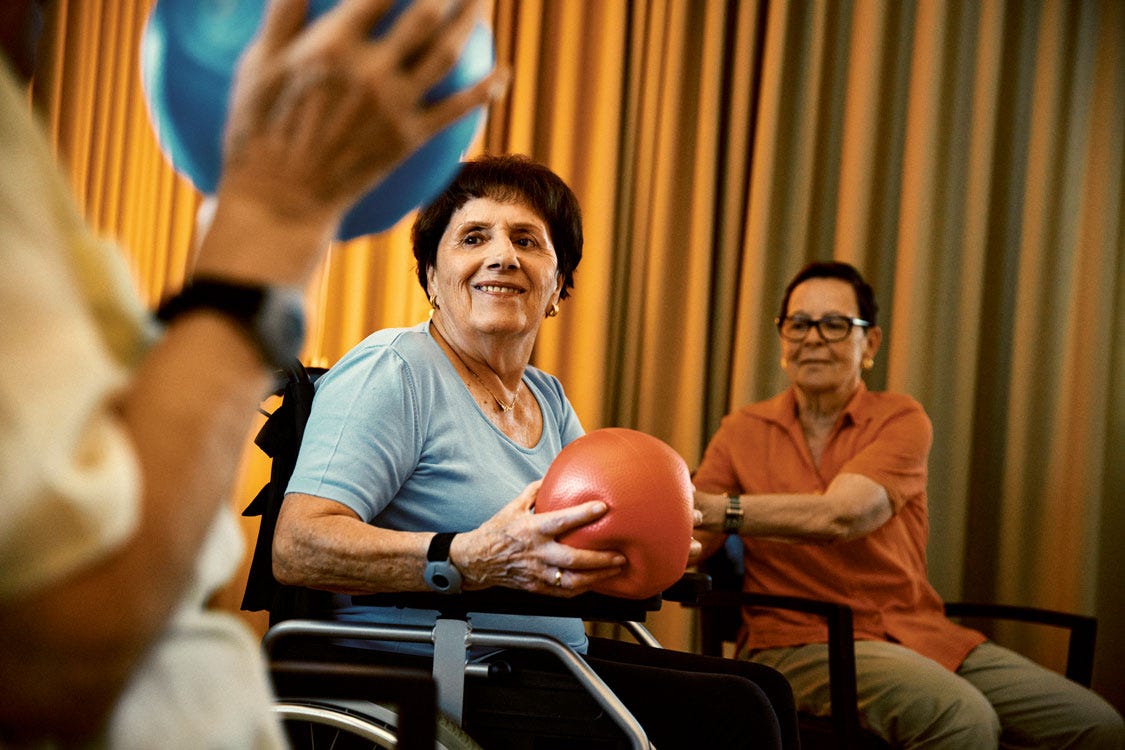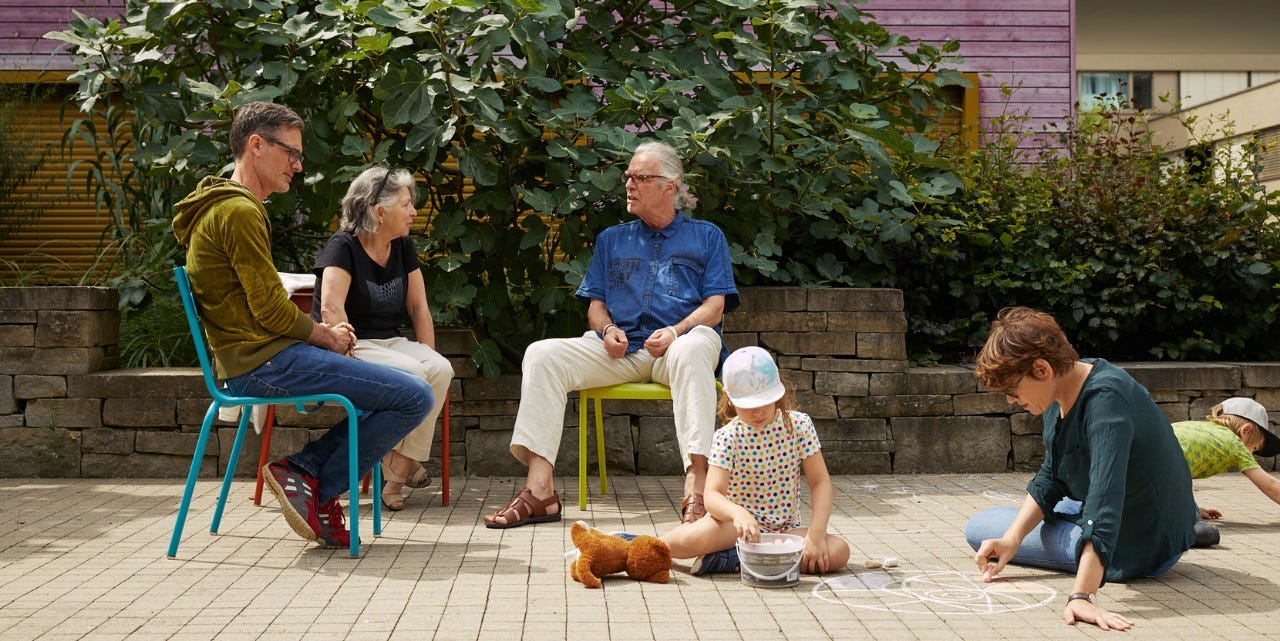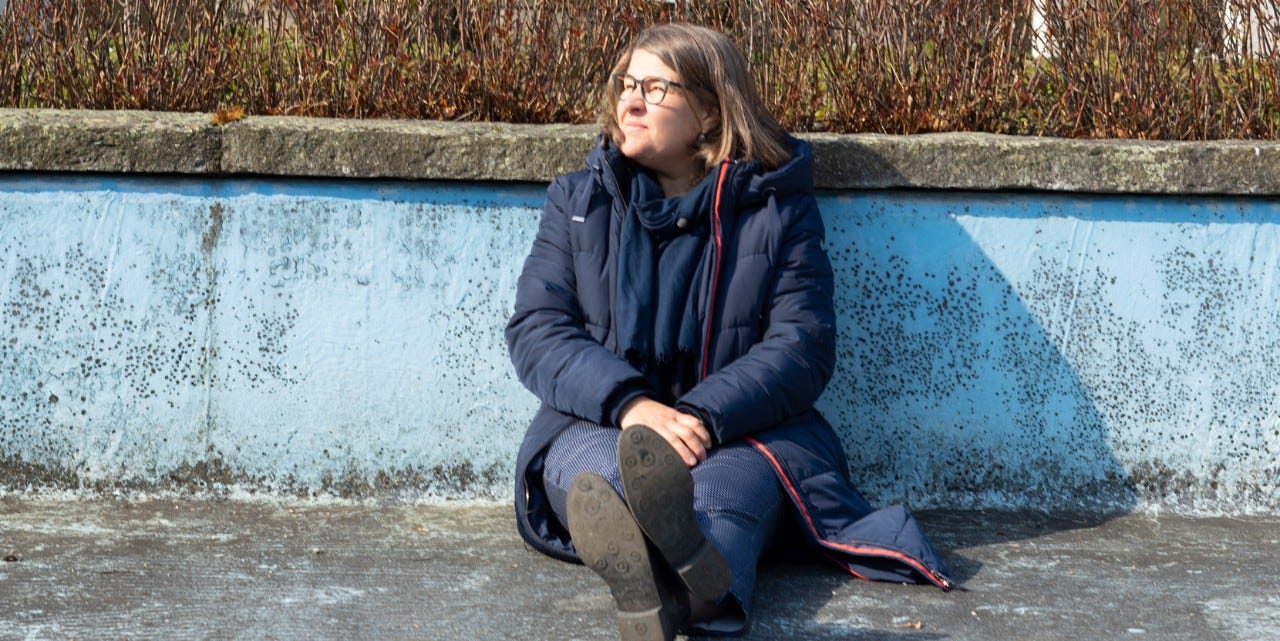In good hands: life in a care home
Moving into a care home is often a difficult topic for those affected and their relatives. However, making the move can be a life-enhancing experience for everyone involved.
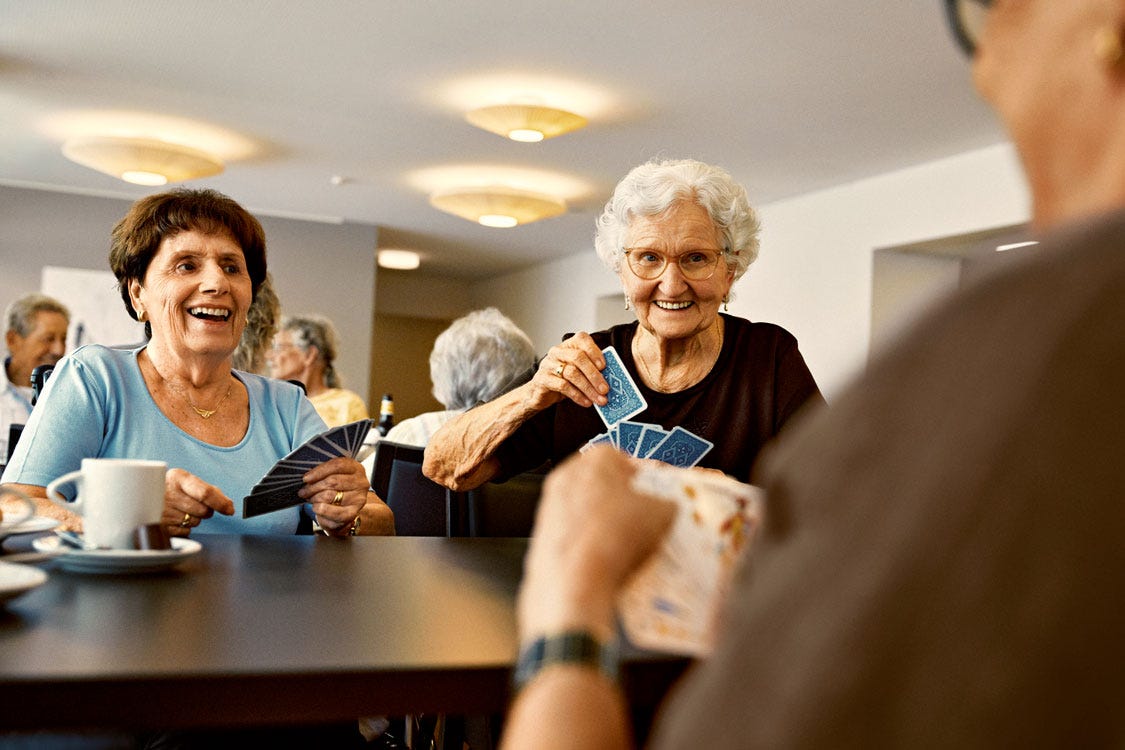
Things are hotting up at the table where Margrit Kost and her friends Veronika and Anna are playing bridge. The three ladies are goading each other under the bright lights of the restaurant at the Riedbach Care Centre. There’s plenty of laughter, but they’re also deep in concentration, because each of them wants to win the game. It’s thanks to Margrit that this happy get-together today is even possible. Originally, the 82-year-old from Adligenswil had no intention of ever moving into a care centre.
When living at home is no longer possible
The story goes like this: until autumn 2022, Margrit lived alone in a small flat in the centre of Adligenswil near Lucerne and was an integral part of village life. She was constantly out and about with her walking frame, whether visiting one of the local cafés or playing bridge with friends. "We tried to maintain our mother's independence for as long as possible," recalls her son Andreas Kost. "However, due to her long-term illness with multiple sclerosis, she began to notice increasing difficulties with movement and coordination as she got older."
A tightrope act for both Andreas Kost and his sister Regula Savelkoul. Especially after the death of their father, their mother’s MS relapses became more frequent and severe, and she suffered more and more falls. “We often didn’t know what to expect after a fall,” recalls Andreas. It was an extreme burden, and not just for the children. “I never complain,” says Margrit, “but I’m also very stubborn.” Was it a case of selfishness?
Pure selfishness! Not entirely, say the siblings. Rather, they believe their mother had difficulty coming to terms with her own mortality.
Parent and child: Suddenly the roles are reversed
When difficulties and accidents became an everyday occurrence in Margrit’s life last year, the discussion about moving to a care home couldn’t be put off any longer. “These discussions weren’t at all open or objective,” says Andreas. “The heated arguments they involved were very emotional for me.” It’s also hard for children to be confronted with their parents’ frailty. “No matter how well you prepare for it, it hurts when the roles are suddenly reversed,” says Regula. “Neither Andreas or I had the capacity to look after our mother in an emergency, so we looked for an interim solution and found the option for her to have a short stay at the Riedbach Care Centre.”
Living in the care centre on a trial basis
“It’s not easy to admit that you need support. And it’s even more difficult to accept help. Many older people only accept it when they really don’t have any other option,” says Nicole Winkler, Managing Director of the Riedbach Care Centre. “We offer short stays of up to two months for temporary relief and recuperation – after hospitalisation, for example – but also for a trial stay.” In Margrit’s case, it was initially planned that she would stay for three weeks.
A sigh of relief – despite the nagging guilt
Margrit’s three-week stay changed the world for Andreas and Regula. “Suddenly the constant uncertainty and the fear associated with it were gone and we were finally able to really relax again,” recalls Margrit’s son, who is still struggling with a guilty conscience about it, just like his sister. “The word ‘abandonment’ has come up a few times,” says Andreas, visibly emotional. “It was also a change for us to no longer see our mum in her familiar surroundings.” Nevertheless, the siblings don’t regret the move. They know that their mum is looked after around the clock and they can visit her at any time for lunch or coffee and cake without any worries. Margrit was able to add her own furniture to her room, while her daughter Regula decorates the rooms seasonally. Much to the delight of the care centre staff, who themselves attach great importance to a beautiful interior.
A new stage of life
Margrit now seems to have found a home in the care centre. There is a twinkle of mischief in her eyes, especially when she repeats that she never actually wanted to move here. “There’s always something going on,” she says and talks enthusiastically about the dancing and singing events, the group ‘chair gymnastics’ programme, and her weekly visits to the local hairdressing salon and the beautician who regularly colours her eyelashes. The only thing she struggles with is getting an early night’s sleep, which is why she set up a bridge group fairly quickly after moving in, with the help of the care manager. The group keeps things lively at Riedbach.
Tips from an expert
“Planning the last stage of life is a taboo in many families and involves a lot of emotions. That’s why it’s important to talk to your parents about life in old age as early as possible. What are their wishes, what help is available and what forms of housing or institutions would they consider? They too will hope to remain independent for as long as possible, but their life situation can change rapidly due to an illness or a fall. In such cases, there is a risk that relatives and those affected will suddenly have to act independently rather than autonomously. Either way, choosing the right home takes time. You need to think this step through carefully. In addition, many nursing homes have long waiting periods," says Nicole Winkler, Managing Director of Pflegezentrum Riedbach.
